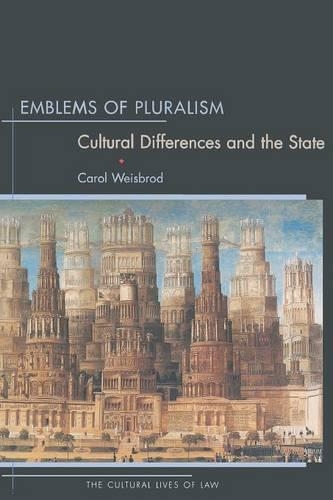
Emblems of Pluralism: Cultural Differences and the State
(Paperback)
Publishing Details
Emblems of Pluralism: Cultural Differences and the State
By (Author) Carol Weisbrod
Princeton University Press
Princeton University Press
2nd January 2003
United States
Classifications
Professional and Scholarly
Non Fiction
Systems of law
Central / national / federal government
340.115
Physical Properties
Paperback
232
Width 152mm, Height 235mm
312g
Description
From outlawing polygamy and mandating public education to protecting the rights of minorities, the framing of group life by the state has been a subject of considerable interest and controversy throughout the history of the United States. The subject continues to be important in many countries. This book deals with state responses to cultural difference through the examination of a number of encounters between individuals, groups and the state, in the United States and elsewhere. The book opens the concepts of groups and the state, arguing for the complexity of their relations and interpenetrations. Carol Weisbrod draws on richly diverse historical and cultural material to explore various structures that have been seen as appropriate for adjusting relations between states and internal groups. She considers the experience of the Mormons, the Amish and Native Americans in the United States, the Mennonites in Germany and the Jews in Russia to illustrate arrangements and accommodations in different times and places. The Minorites Treaties of the League of Nations, political federalism, religious exemptions, nonstate schools and rules about adoption are among the mechanisms discussed th
Reviews
"In this rich and wide-ranging book, the reader is likely to encounter some stories that are thought-provoking, some of that were previously unfamiliar, and some that put old disputes in a new light."--Keith E. Whittington, The Law and Politics Book Review
Author Bio
Carol Weisbrod is Ellen Ash Peters Professor of Law at the University of Connecticut. She is the author of "The Boundaries of Utopia and Butterfly, the Bride" and coauthor of a casebook on "Family Law".
